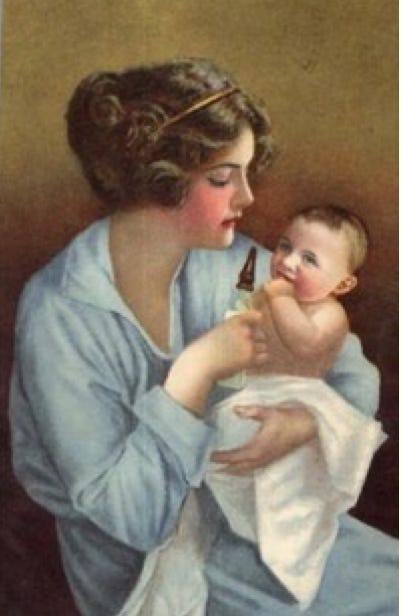Drug Abuse Signs in Teens

Alcohol and other drug abuse are a common problem among teens.
Here are the facts from some national surveys:
93% of all high school seniors have used alcohol.
19% (one out of five) of high school students is an alcoholic (33 million nation-wide).
Average age for the first drink is 12 1/2 years.
45-60% of all fatal accidents involving young drivers are alcohol-related.
Drunk driving is the leading cause of death in the 15-25 age group.
Among high school seniors:
35% have used stimulants (speed).
16% have used cocaine.
13% have used sedatives (downers).
Children of alcoholics develop alcoholism more often than children of non-alcoholics.
Questions which may indicate drug or alcohol abuse:
1.
Has your child's personality changed dramatically?Does he/she seem inattentive, depressed, extremely irritable, hostile without reason? Do his/her moods change suddenly, intensely and without cause?
2.
Is your supply of liquor, mood or diet drugs decreasing?Unless you keep a close inventory, you may not detect diminished amounts for months.
3.
Is your child less responsible about doing chores?About getting home on time? About following household rules?
4.
Has he/she lost interest in school?In extra curricular activities? Sports? Are grades dropping? Has the teacher complained that your child is sleeping or inattentive in class? Is you child skipping school? Problems at school are frequent warning signs.
5. Has your child changed friends?Does he/she hang out with a new group, who might be drinking or using drugs?Are there long parties lasting overnight? A child with alcohol or drug problems will abandon old friends and seek out those with similar attitudes about drugs.
6. Does your child seem to have plenty of money but no job?Is he/she selling personal possessions (clothing, CD's, gifts)? Are you missing money or objects which could be sold for cash?
7. Have neighbors, friends or others talked to you about your child's behavior or actual drug-taking?Rumors may or may not have substance, but do not completely dismiss this information.
8. Has your child been arrested for drunkenness?Driving under the influence of alcohol or other drugs? Disorderly conduct? Vandalism? Has he/she been at parties that were broken up by the police? Encounters with the legal system often indicate underlying problems with alcohol or other drugs.
9. Does your child strongly defend his/her right to use alcohol or other drugs?People get defensive about something which has a very high value to them.
10. Does your child "turn off" to talks about alcohol and other drug addictions?Abusers would rather not hear anything that contradicts their behavior. A non-abuser will listen without becoming defensive.
11. Does your child get into fights with other youngsters? With other family members?More than 70% of all beatings, stabbings and assaults have occurred when one or both participants has been drinking or abusing other drugs.
12. Are there medical or emotional problems?Teens on uppers or downers usually lose their appetite. Taking PCP (angel dust) leads to paranoia and hallucinations. Long term marijuana use can lead to bronchitis (chronic cough). Heavy drinkers experience problems with digestion, ulcers, malnutrition and depression. Frequent nosebleeds can be a sign of cocaine use.
13. Do you detect physical signs?Alcohol on the breath? Dilated pupils? Hyperactivity? Sluggishness? Slurred or incoherent speech? Falling or staggering?
14. Does your child often lie to you and to others?Young abusers get in the habit of lying, and begin to do it automatically.
15. Does your child volunteer to clean up after adult cocktail parties?Draining half-empty glasses is a cheap high.
16. Do you find bottles or drugs in the bedroom, garage, car or van?Parents of abusers are amazed to find stashes of alcohol or drugs under mattresses, in stereo speakers, or behind insulation in garages.
17. Is your child irresponsible in using the family car, taking it without permission, making excuses for not getting home on time?Many teens drink in cars and then drive, a very dangerous combination.
18. Does your child stay alone in his or her bedroom most of the time, bursting forth only occasionally? Does he/she resent questions about activities and destinations? Some secrecy, aloofness and resentment is normal for teens. But when carried to the extremes, it may signal problems with alcohol or other drugs.
19. Have your child's relationships with other family members deteriorated? Does he/she avoid family gatherings which were once enjoyed?An abuser's ability to relate to others suffers. the primary family relationships are affected first.
20. Has your child been caught dealing in drugs or giving them to friends?
If your child's matches several of the warning signs described in this questionnaire---get help! Call your pediatrician or local mental health office. Be sure to discuss your concerns with your child's teacher, principal or school counselor.
Summary of the Warning Signs:
Changes in:
personality
grades
memory
friends
weight
Decline in:
personal appearance
energy level
involvement with family
Increase in:
defensiveness
temper
legal problems
spending money
isolation
secretiveness
Source: Vanderbilt Child and Adolescent Psychiatric Hospital
